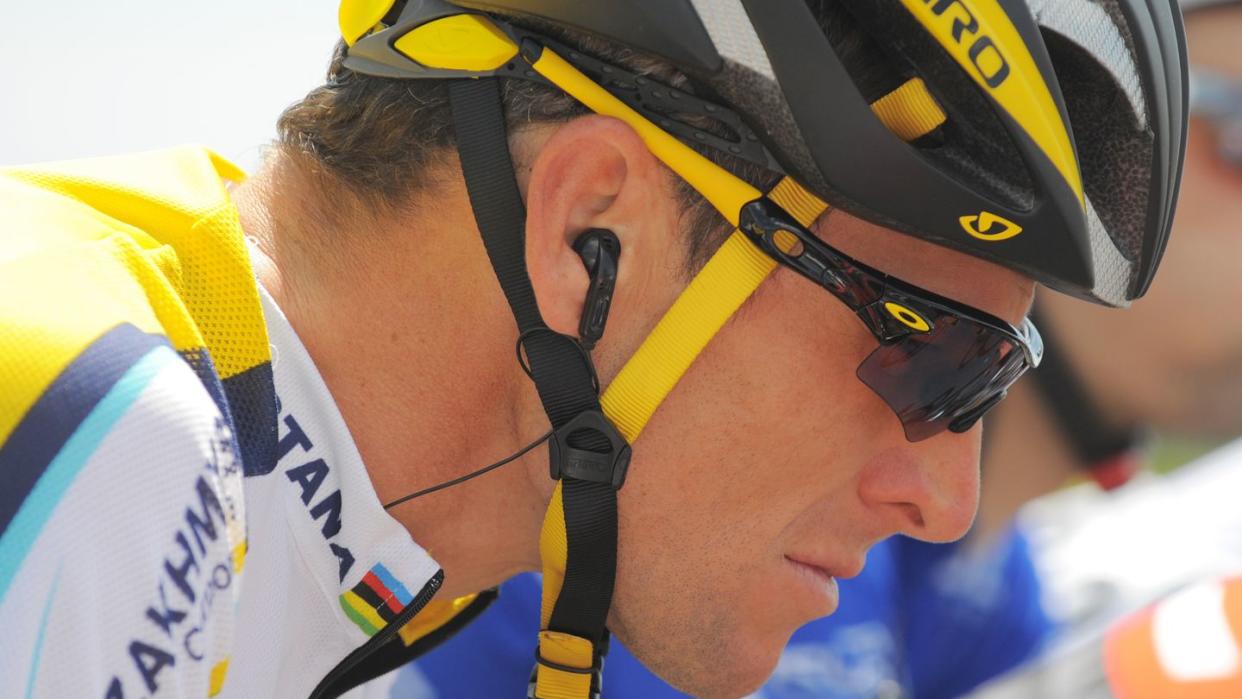Lance Armstrong Reveals Exactly How He Got Away With Cheating For So Long

- Oops!Something went wrong.Please try again later.
"Hearst Magazines and Yahoo may earn commission or revenue on some items through these links."
In an interview with Bill Maher, Lance Armstrong explained how he never failed a drug test.
Armstrong used erythropoietin (EPO), a red-blood-cell-boosting hormone, to improve his aerobic performance.
EPO has "a four-hour half-life," said Armstrong, so "you can just do the math."
“I’ve been tested 500 times and I’ve never failed a drug test.”
Lance Armstrong was never wrong when he said that. And he said that often. His swift and high-profile fall from grace came after he was done being tested, after he had left the sport of cycling behind. And never was it due to a failed test.
Which has led to a nagging question that has lingered for so many: As one of the highest-profile athletes on Earth, how did he get away with it for so long?
It's well-known that Armstrong cheated, but now, courtesy of a new wide-ranging interview with politico-comedian Bill Maher, Armstrong shared more insight into how he got away with it for so long.
“There was no way around the test,” Armstrong recently said on Maher’s Club Random podcast. He continued:
“When I pissed in the cup and they tested the piss in the cup, it passed. Now, the reality and the truth of all of this is, some of these substances, primarily the one that is the most beneficial, has a four-hour half-life. So certain substances, whether it be cannabis or anabolics, or whatever, have much longer half-lives.”
The “one that was most beneficial” that Armstrong mentions was erythropoietin (EPO), a red-blood-cell-boosting hormone that increases oxygen transportation throughout the body, thereby improving aerobic performance.
“You could smoke that joint and go to work driving your tractor (and) in two weeks test positive, because the half-life is much longer,” Armstrong told Maher. “With EPO, which was the rocket fuel that changed not just our sport but every endurance sport, you have a four-hour half-life, so it leaves the body very quickly. With a four-hour half-life, you can just do the math.”
By “the math,” it can be assumed the Armstrong was referencing the length of an average Grand Tour stage, meaning, by the time a stage was finished and Armstrong might be tested, the level of EPO in his system was undetectable.
After years of speculation and accusation by his detractors, and subsequent denial by Armstrong and his team, the Austin, Texas native admitted to Oprah Winfrey in a 2013 interview that he had, in fact, cheated.
His fall from grace was swift, with his then-record seven Tour de France victories stripped, a lifetime ban from competitive cycling handed down by the UCI, a remittance of his Olympic medal, a $5-million-dollar settlement paid to the United States government, and countless lost endorsement revenue.
After a few years spent under the radar, Armstrong has been slowly making his way back into the public conversation. He hosts a popular cycling podcast called The Move alongside former teammate George Hincapie, their former manager Johan Bruyneel, and Austinite JB Hager. Armstrong has also appeared on a reality television show that sent several celebrities to a simulated version of Mars. He even got back into the bike scene, when direct-to-consumer brand Ventum announced Armstrong as one of their endorsees.
You Might Also Like

